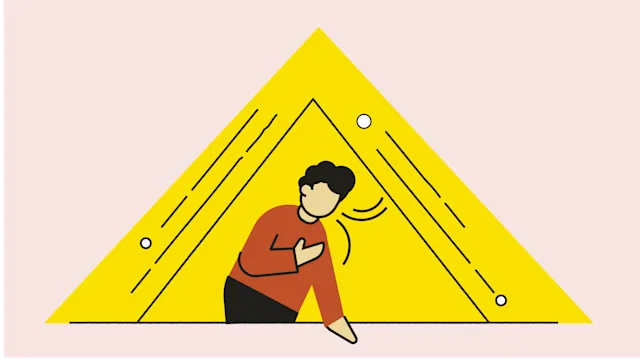Key takeaways:
Grover McCants survived a heart attack thanks to quick intervention.
The Detroit businessman struggled with high medication costs after getting treatment.
He used GoodRx to help him afford medications.
Grover McCants had just finished work for the day near Detroit when he felt an odd pressure in his chest. It felt like someone was pushing him.
Then, the businessman started sweating profusely. His temperature shot up. The next thing he knew, he was vomiting.
“I’m thinking, is this bad indigestion, or something like that? I’m taking antacids. And my wife just says, ‘No, no, no. We’re going to the emergency room. Something serious is wrong,’” recalls Grover, then in his early 50s.
Grover was having a heart attack — and arrived at the hospital just in time.
After a whirlwind of treatment, including surgery, Grover survived. But then another shock came when he learned of the cost of the medications he would need for years to come.
“It was very, very expensive,” he explains in this TikTok video for GoodRx.

The daunting cost of prescriptions
After a heart attack, medications can play a key role in lowering rates of death and disability. However, the costs of such long-term prescriptions can be daunting.
A study in the American Heart Association’s Circulation journal found that 1 in 8 adults with common heart diseases skipped medications, delayed filling prescriptions, or took lower doses than prescribed because of cost concerns.
Those who have suffered heart attacks “often require long-term treatment and may be limited in their ability to access required medications because of their cost,” the study reported.
Those worries were even more acute for Grover: He did not have insurance.
“I had no idea what I was going to do,” he says.


Heart attack brings financial struggle
In the 1980s and 1990s, Grover, a father of three, worked in sales and marketing for the Detroit Pistons pro basketball team before starting his own marketing business.
He placed advertising for clients such as businesses and politicians. But this meant that he was self-employed and not getting a regular paycheck.
“It’s feast or famine,” he says. “Then you’ll have lulls when the phone doesn’t ring.”
And that also meant no employer-provided health insurance. So he went without.
He’d never had a serious illness. But he didn’t realize that years of smoking and unhealthy eating habits — grabbing fast food amid busy days — were catching up to him.
He had just stopped smoking before his heart attack in October 2006. It wasn’t the kind of sudden, sharp stabbing pain that he’d seen portrayed on TV, so the diagnosis surprised him when he and his wife reached the hospital.
“Sure enough, they said, ‘Your husband is having a massive heart attack right now. And if you waited another 2 or 3 minutes, he’d have been gone,’” he recalls.
He credits his wife, Karen McCants, with saving his life.
A doctor inserted stents to open his blocked arteries. Then he prescribed medication to reduce the risks of death or disability — medications he’d have to take for many years.
Among the medications he was prescribed:
Metoprolol: a beta-blocker that lowers heart rate and blood pressure to decrease the amount of work the heart has to do
Clopidogrel (Plavix): an antiplatelet medication that helps prevent blood clots
Atorvastatin (Lipitor): a statin medication that reduces cholesterol and the chance of heart attacks
Pantoprazole (Protonix): for treating acid reflux
The cost came to many hundreds of dollars a month out of pocket.
He wasn’t alone: An American College of Cardiology study found nearly half of people with cardiovascular disease suffer financial hardship related to their medical bills. But often, not taking medications can mean even more medical expenses down the line.
Grover’s doctor helped him out with medication samples. That helped him scrape by for years. “But it was a struggle,” he says.
GoodRx coupons help him save on prescriptions
In 2011, Grover’s new cardiologist told him about GoodRx, a then-new startup that provided coupons for discounts on medications.
Grover says it significantly slashed his out-of-pocket medication costs.
“Altogether, you’re probably looking at about $250 a month with GoodRx, as opposed to $900 or $1,000 without it,” he says.
“Without the card, I probably would not have been able to afford it,” he says. “It was a lifesaver.”
Around 2013, his wife got a job with a community college system that allowed him to get health insurance. And years later, he went on Medicare. He’s now 67 years old.
Another thing helped him lower his medication costs as well, he says: lifestyle and diet changes. He stopped drinking sugary soda or indulging too often in fast food or pizza. He was able to get off Plavix, but he still takes Lipitor and metoprolol.
He says his heart attack was a “wake-up call” to change his habits and make sure he’ll be around for his family, including his two grandchildren.
“It’s important that I stay healthy so I can spend time with my family,” he says.

Why trust our experts?

















